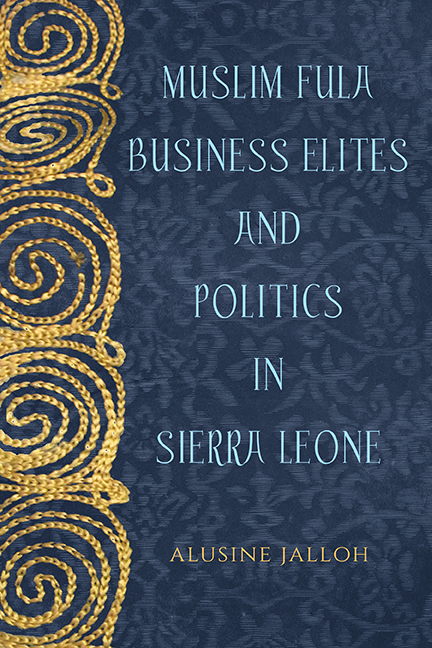4 - The Joseph S. Momoh Presidency, 1985–92
Published online by Cambridge University Press: 02 June 2021
Summary
Joseph Saidu Momoh was born on January 26, 1937, at Binkolo in Bombali, but the Momoh family migrated to Freetown and then settled at rural Wilberforce in the early 1940s. Momoh attended the West African Methodist Collegiate School in Freetown between 1951 and 1955, when he earned the Cambridge school Certificate. Next, Momoh enrolled at the Government Clerks School, Technical Institute. On graduation, Momoh joined the Civil Service in 1956 and worked as a third grade clerk until his resignation in 1958. In that year, Momoh enlisted as a private in the then Royal West African Frontier Force (RWAFF)—officially disbanded in 1960—thus starting a long distinguished military career. In the 1950s and 1960s, Momoh received military training at the Regular Officers Training School in Tieshi, Ghana; the Nigerian Military Training Academy in Kaduna, where he won the Baton of Honor; and in the United Kingdom both in the School of Infantry in Hythe and the Mons Officers Cadet School at Aldershot, where he was awarded the Sword of Honor as the most exceptional overseas cadet. In 1963 Momoh was commissioned as second lieutenant in the then Royal Sierra Leone Military Forces and promoted to major while he was commanding Moa Barracks at Daru in Kailahun.
In the wake of Momoh's brief imprisonment at Pademba Road Prison after the military coup that ousted the NRC, he continued to serve in the military and was made lieutenant colonel and commanding officer of the First Battalion in 1969. This was followed by promotion to full colonel in 1970. Then, in September 1971, President Stevens appointed Colonel Momoh, deputy force commander, as acting force commander following an attempted military coup led by Force Commander Brigadier John Bangura earlier in March 1971; Momoh was confirmed in his new position in November the same year. Moreover, Momoh received the insignia of Officer of the Most Excellent Order of the British Empire (OBE) in the same year. And in 1973, President Stevens promoted Momoh to Brigadier of the Republic of Sierra Leone Military Forces (RSLMF). Beyond that, in 1974 President Stevens named Brigadier Momoh as a Nominated MP and minister of state with cabinet status. By including Momoh in political decision making, President Stevens was influenced by the Tanzanian model of governance, which he admired.
- Type
- Chapter
- Information
- Muslim Fula Business Elites and Politics in Sierra Leone , pp. 175 - 210Publisher: Boydell & BrewerPrint publication year: 2018

